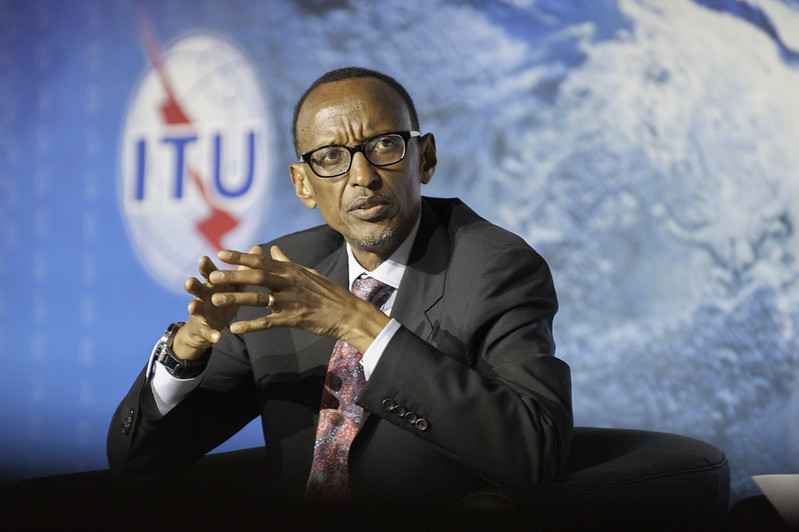Rwanda Leverages Technology to Become Africa’s Innovation Hub
 Rwanda, a landlocked nation in East Africa, is making significant progress toward becoming Africa’s innovation hub. Once defined by the devastation of the 1994 genocide, the country has undergone a remarkable transformation. Indeed, Rwanda has emerged as one of the continent’s most forward-thinking nations. With a clear vision to drive economic growth, the government has partnered with various stakeholders to foster technological advancement, particularly in the fintech sector. By positioning technology and innovation as cornerstones of its development strategy, Rwanda continues to solidify its reputation as a leader in Africa’s digital transformation.
Rwanda, a landlocked nation in East Africa, is making significant progress toward becoming Africa’s innovation hub. Once defined by the devastation of the 1994 genocide, the country has undergone a remarkable transformation. Indeed, Rwanda has emerged as one of the continent’s most forward-thinking nations. With a clear vision to drive economic growth, the government has partnered with various stakeholders to foster technological advancement, particularly in the fintech sector. By positioning technology and innovation as cornerstones of its development strategy, Rwanda continues to solidify its reputation as a leader in Africa’s digital transformation.
Kigali Innovation City: A Catalyst for Growth
Kigali Innovation City lies at the center of Rwanda’s digital transformation. The city serves as a flagship project under the Smart Rwanda Master Plan. It drives the nation’s efforts to position itself as Africa’s hub for innovation. The City integrates university campuses, research and development facilities and business hotels to accelerate the digital transformation to stimulate regional economic growth. President Paul Kagame’s administration has led advancements in ICT infrastructure, laying the groundwork for Rwanda’s digital revolution.
Startups like Zipline and SafeMotos have become key players in Rwanda’s growing tech hub, revolutionizing health care and transportation. SafeMotos, a ride-hailing platform, provides safe and reliable motorcycle taxi services in Kigali. The startup is improving road safety and transportation efficiency while offering affordable mobility solutions to underserved communities. Zipline, a drone technology company, delivers life-saving blood and medical supplies to remote areas, addressing health care gaps worsened by poverty. These innovations highlight the role of technology in solving societal challenges and improving living standards, revealing Rwanda’s success in becoming a hub for innovation in Africa.
Technology’s Role in Poverty Reduction
The rapid growth of Rwanda’s ICT sector has had profound impacts on poverty alleviation, with tangible benefits across multiple areas:
- Job Creation. The ICT sector is a significant employer, directly providing thousands of jobs. As of 2020, the sector contributed 3% to Rwanda’s GDP, a figure projected to triple within the next decade. ICT developments have helped to increase productivity in agriculture through the use of mobile phones and drones. These advancements have reduced post-harvest losses and improved crop yields. The changes have increased farmers’ incomes and contributed to national GDP growth, directly addressing rural poverty where it is most acute.
- Health Care Access. Zipline, a part of Rwanda’s technological transformation, has expanded health care access to essential health care in underserved regions by delivering medical supplies to remote areas of the country. By improving health care outcomes, these innovations reduce the economic burden of disease.
- Export Diversification. The ICT sector is now Rwanda’s second-largest export contributor, accounting for 17% of total exports. This diversification reduces the country’s reliance on primary commodities such as coffee and tea. Additionally, diversification strengthens Rwanda’s economic stability, creating a more resilient environment for poverty reduction. The revenue generated by ICT exports fuels critical investments in infrastructure like that of the Kigali project, perpetuating a positive multiplier effect.
A Model for Africa and Beyond
Rwanda’s transformation demonstrates how technology and strategic planning can potentially drive sustainable development and economic resilience. Indeed, by investing in innovation and digital infrastructure, the country has created solutions to address health care gaps, improve transportation and diversify its economy. This success positions Rwanda as a model for other nations seeking to reduce poverty and stimulate growth through technology. Furthermore, its journey highlights the potential for strategic leadership and innovation to create lasting progress across Africa and beyond.
– Edzhe Miteva
Edzhe is based in London, UK and focuses on Global Health and Politics for The Borgen Project.
Photo: Flickr
